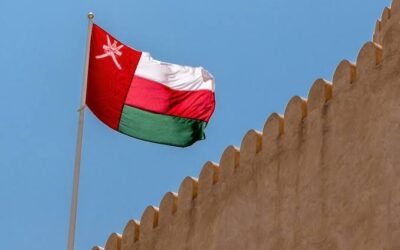Israel’s endless wars
Agriculture in the West Bank loses more than $22 million in two months
Razan Akram Zuaiter*
For more than 100 days, the world has felt the scale of the humanitarian catastrophe caused by the occupation and its allies and the stifling siege it imposes on Gaza, and although it is too early to issue reports accurately documenting the losses; However, the pictures and video messages transmitted by the people of Gaza themselves from the field initially indicate the size and severity of the losses, not as an immediate loss that can be compensated, but rather as a series of extended losses that the occupation intends to inflict further harm. After the end of “Saif Al-Quds” tour in May 2021, and during 11 days of war, the losses of the agricultural sector alone in Gaza amounted to about $200 million.
But what about the West Bank, which the occupation wanted to sever its connection with Gaza, by also besieging it and fragmenting it with an intractable network of colonies and roads that divided the Palestinian cities and changed their features, in addition to military checkpoints, iron gates, the apartheid wall, and settlement outposts scattered under the protection of the occupation army. We must not ignore how the last harvest season passed for West Bank farmers, how the armed colonists and the occupation army isolated them, and how the Israeli government launched a frantic campaign against them. There is nothing better than numbers to show the facts of the parallel war waged by the Israeli government against the Palestinian agricultural sector.
Figures issued by the Palestinian Ministry of Agriculture speak of 53 days of harvest season, from October 7 to December 1, 2023. In these fifty-three days, the occupation, with its army and colonialists, took advantage of the world’s preoccupation with the war of extermination that it was waging against Gaza and obstructed farmers’ access to their lands. In the West Bank, including those located behind the apartheid wall, with intimidation not only through the Zionist army, but also through their colonial arms and extremist Zionist movements that have been targeting villages and farmers’ lands, such as the “Hill Boys” movement, and the “Green Beret Women” movement that rose to reject. The Oslo Accords and others, so the frequency of attacks increased significantly during the harvest season in 2023. The matter reached the point where farmers, including the martyr farmer Bilal Saleh, from the town of Al-Sawiya in the Nablus district, died while he was heading to his land to pick olives.
The Zionist attacks were taken as monitored by the Palestinian government; In various forms, including burning orchards and buildings, uprooting trees, stealing and destroying crops, equipment and fodder, bulldozing Palestinian land and infrastructure to establish 13,000 new settlement units, blocking water sources, isolating springs and polluting them in Palestinian villages, destroying water infrastructure and solar panels, and even seizing animals. As happened in Tubas when they stole 70 cows.
Accordingly, the losses of the Israeli attacks on the Palestinian agricultural sector during the aforementioned period amounted to 22 million and 585,410 dollars, and the losses in the vegetable sector, especially the olive sector, topped the list at a rate of 94%.
Olives always have a special story with the Palestinians, and the loss in them is great, as the occupation isolated 82 thousand dunums planted with olives, meaning that 11% of the olive groves were not harvested in 2023, as the occupation, with its army and colonialists, prevented the harvesting of 1,977,615 trees in them. As a result, the Palestinian economy in the West Bank lost $11,541,740 million, representing 51% of the losses of the Palestinian agricultural sector, in less than two months.
In recent days, we have seen the video of the Israeli soldier who performed the Biblical ritual of blowing the shofar in Hebrew while storming the city of Tulkarm, in a symbolic sign of its occupation and the beginning of a new phase. He was preceded by Rabbi Shlomo Gurion, who blew the trumpet on Mount Sinai when the Zionist army occupied it during the tripartite aggression in 1956, and also on Moroccan Hill in Jerusalem in 1967. What the Israeli soldier did was not an individual spiritual practice, but rather systematic action by the entity towards the governorate, which came first according to Palestinian government figures, a list of governorates that suffered the greatest agricultural losses in less than two months. In addition to Tulkarm’s losses, 7 other governorates lost more than one million dollars.
These numbers have another approach, especially since the occupation considers the harvest period a valuable game, so it always obstructs Palestinian farmers’ access to their lands and steals them through intimidation, shooting, and arrests, which expanded in the West Bank and resulted in the capture of 4,575 Palestinians within two months. Despite the colonists hanging intimidating messages on trees threatening Palestinian farmers; However, the people remained steadfast and completed the harvest season so as not to open the way for the occupation to confiscate their lands. In a short period (53 days), the attacks affected 6,809 farmers, more than 1,900 of them in Tulkarm, 1,700 in Salfit, and more than 1,000 in Jenin.
This is a real war that our people in the West Bank are fighting, who are being subjected to intimidation and militarization by the colonialists. One of the Zionist officials, in a statement to the Hebrew newspaper “Haaretz”, likened the extreme right-wing government’s distribution of weapons to them to the fact that they are “distributing weapons as if they were distributing candy.” The Zionist Minister of National Security, Ben Gvir, launched a plan in mid-2023 to arm about 400,000 settlers in the West Bank. In the two months since October 2023, more than 250,000 applications for possession of firearms have been registered, and approvals have been granted for 86,000.
But with all the challenges and “transfer” plans, the people did not stop working to protect their lands, and many joined together to complete the harvest season and open the 2023-2024 planting season.
This inspiration undoubtedly gives us more strength to continue in the “Arab Network for the Protection of Nature” with Palestinian farmers in protecting their lands from confiscation by planting them, and in parallel with devoting our content to supporting the resistance in Gaza through continuous campaigns to explain and expose the crimes of the occupation by using food as a weapon against Palestinian civilians and continuing the “One Million Trees” campaign. “
We are awaiting the completion of its third million soon and the start of planting the fourth million fruit trees throughout Palestine. Every inch of Palestine is our land.
Published in conjunction with





